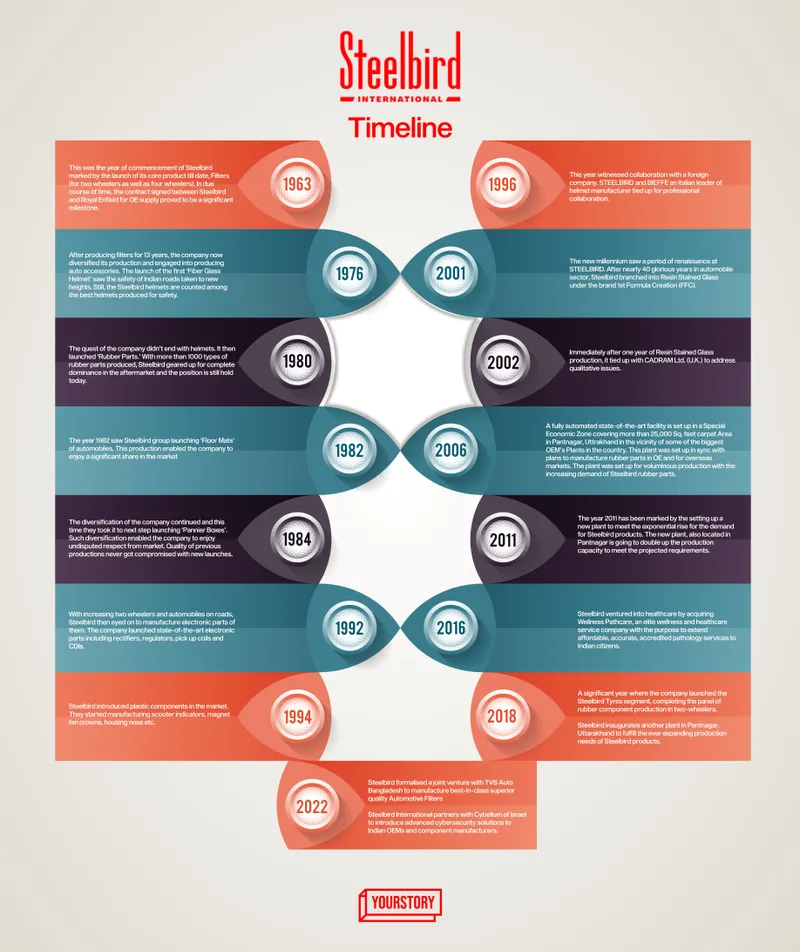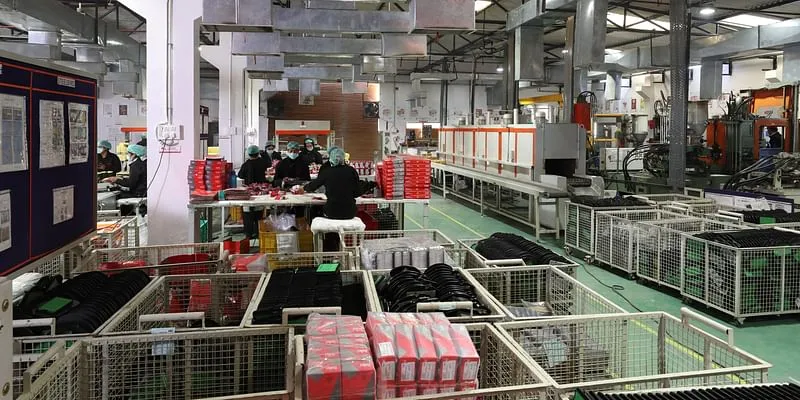How Steelbird International is targeting cybersecurity to expand its automobile component business
The history of Steelbird International dates back to 1964 when father-son duo Tilak Raj Kapur and Ramesh Kapur launched a two-wheeler filter manufacturing company. Third-generation entrepreneur Manav Kapur is now eyeing expansion by foraying into automotive cybersecurity.
Seamlessly connected vehicles are considered to be the future of the automobile industry. However, this connectivity is also expected to make them vulnerable to cyberattacks.
Steelbird International, one of the leading players in the automobile component industry in India, is eyeing automotive cybersecurity to chart its next phase of growth.
Started as a two-wheeler filter manufacturing company in 1964 under the License Raj, Steelbird International has come a long way to become one of the leaders in the after-market of automobile industry by bringing rubbers, bearings, and lubricants into its product portfolio.
Speaking to SMBStory, third-generation entrepreneur Manav Kapur, Executive Director at the 55-year-old Steelbird International, says, “At present, a very small percentage of vehicles, both Internal Combustion Engines (ICEs) and Electronic Vehicles (EVs), are protected by cybersecurity solutions while the others, with their vulnerabilities, are open to attacks via a connected network. This is the place where we are focussed on giving solutions.”
In 2022, Steelbird partnered with Cybellum Technologies Ltd, a provider of the product security platform to enable Indian auto parts components OEM (original equipment manufacturers) to access solutions to detect, manage, and remediate cyber threats and vulnerabilities.
The making of Steelbird International
Steelbird International was born in the highly controlled automobile market in 1964. For around 30 years, the business survived by only managing the demand as Manav says exports were controlled and raw materials were hard to come by.
Manav’s grandfather Tilak Raj Kapur and father Ramesh Kapur built a two-wheeler filter manufacturing business by setting up a small facility in their hometown Delhi.
The business ran fairly well for three decades and in the 80s, the company also forayed into making rubber parts. In 1991, India opened its markets, leading to opportunities in the automotive industry.
“Although the market opened in 1991, it was for the better of Indian companies but MNCs with deep pockets started to take the pie in the market and that was the time when we were up on our feet to stay agile and fit for the market. That was the time to keep the business surviving and we did it,” Manav tells SMBStory.
With a strong clientele, including the likes of Royal Enfield, Bosch, TVS, and others, Steelbird International saw rapid expansion between 1992 and 2018.

Image credits: YS Design
The company forayed into manufacturing rectifiers, regulators, pick up coils and CDIs, scooter indicators, magnet fan crowns, housing nose, resin stained glass, and Steelbird tyres segment, completing the panel of rubber component production in two-wheelers.
“We are one of the biggest manufacturers and contributors to the aftermarket of automobiles industry,” says Manav. He joined the company in 2005, and since then, Steelbird has been heavily investing in bringing major German technologies to India and also creating ones to up the game in the automobile component industry.
Recently, Steelbird International has also set up manufacturing operations outside India in a joint venture with TVS Auto Bangladesh for filter manufacturing in Bangladesh for the exhaustive range of auto filters. The products will be manufactured for all types of automobiles–two-wheelers, three-wheelers, passenger cars, tractors and commercial vehicles.
Market
Steelbird has four manufacturing plants located across Uttarakhand, Rajasthan, and Noida and another one coming up in Bangladesh. Manav says that the company is rigorously expanding to leverage its partnerships with cybersecurity, artificial intelligence, and machine learning companies to enable the Indian auto component aftermarket with tech solutions.

Steelbird International's factory
When asked about the changing landscape for EVs and how Steelbird expects to cope with the decline in demand for filters, Manay says, “The EV market is on a rise. Right now it only has one percent penetration a year in India which will take another five to eight years of time frame to grow. We don’t see our business contract in the next half-decade. In fact, there is no accurate market established for EVs now but yes, there will be a slump and we are pivoting to cater to every range in the auto space.”
Manav expects that by and large, the components requirements for EVs would be similar except for filters. For now, the company is dealing with challenges related to supply chain problems present across the globe in addition to the raw material shortage.
Talking about the future prospects, Manav says Steelbird International is looking to collaborate with a partner with a strong R&D presence and explore new avenues in the auto sector to foray into just like its latest bet on cybersecurity.
Edited by Affirunisa Kankudti






1553256833936.png?mode=crop&crop=faces&ar=1%3A1&format=auto&w=1920&q=75)
